VET APPROVED

The information is current and up-to-date in accordance with the latest veterinarian research.
Learn more »Beautiful, cheerful little birds like canaries absolutely love to munch on scrumptious, colorful fruits. You can add a variety of fresh fruits and veggies to any canary diet, which should account for approximately one-fourth of their daily intake.
But it’s really nice to know which fruit is best and how to prepare it. Let’s discuss these tasty fruits individually and their health benefits.

What Fruit Can Canaries Eat?
1. Bananas
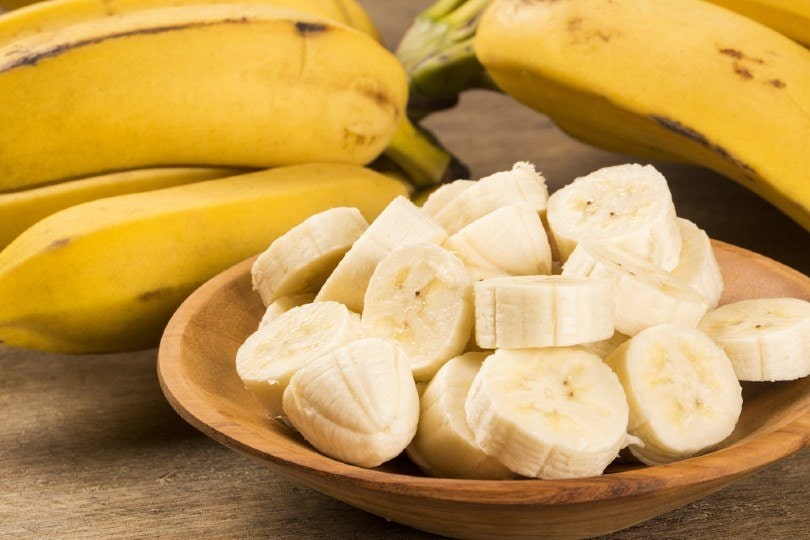
Bananas provide these vitamins and minerals for your bird:
| Vitamin A: | Terrific vitamin for vision |
| Vitamin B6: | Plays a huge role in immune system function and metabolism |
| Vitamin C: | Offers an immunity boost |
| Magnesium: | Strengthens bones and mediates blood pressure |
| Potassium: | Helps maintain normal fluid in the cells |
Bananas are a very desirable snack for your canaries. This soft fruit is easy to eat and packed with a wallop of health perks. Bananas are easy to find at grocery and department stores. We recommend buying organic for your bird if you can.
2. Strawberries
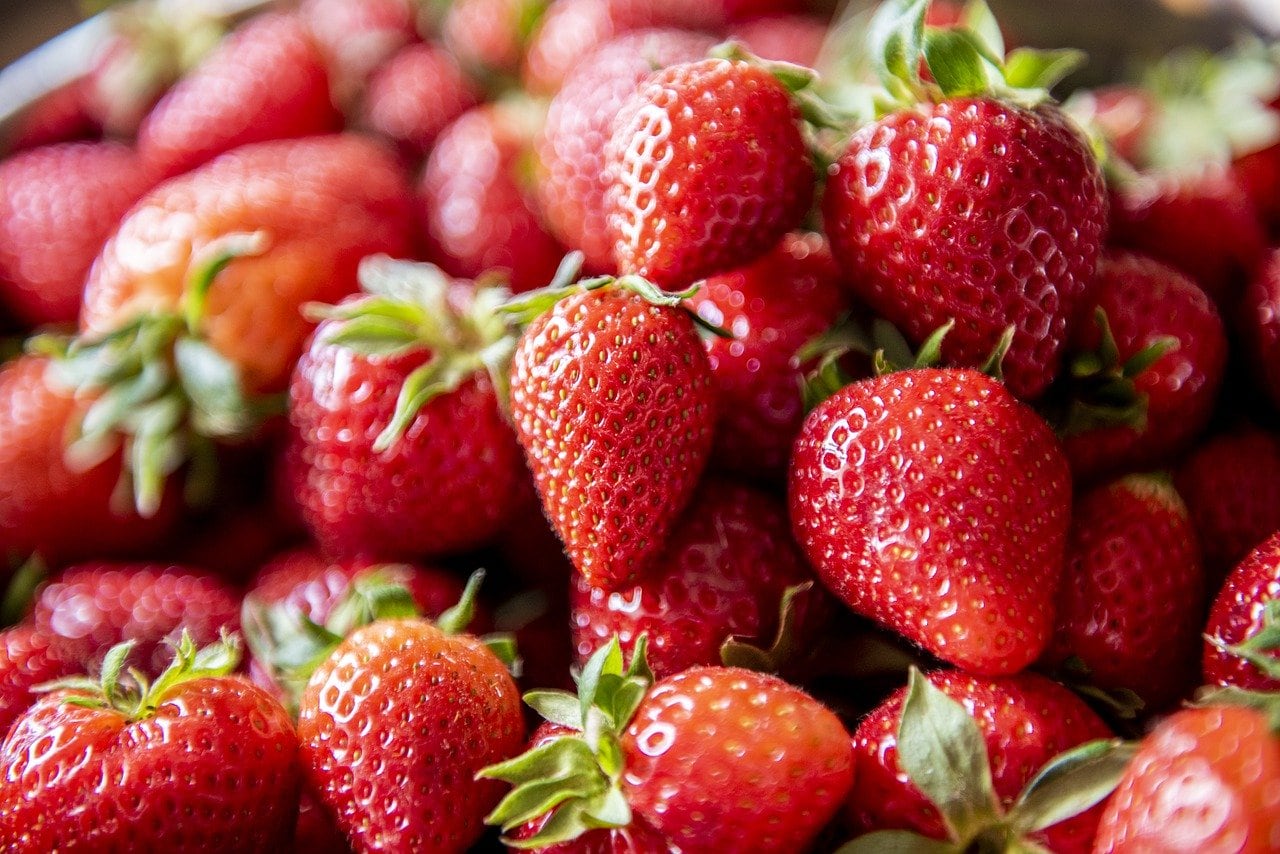
Strawberries provide these vitamins and minerals for your bird:
| Vitamin C: | Offers an immunity boost |
| Manganese: | Helps the formation of connective tissue |
| Fiber: | Regulates the digestive tract |
Strawberries are a delicious red berry you and your bird can enjoy. These summer favorites provide many health benefits to your canary, including hydration. Strawberries will be a real hit for your canaries. These semi-tart, sweet fruits are easy to pick apart and contain no harmful seeds.
3. Grapes
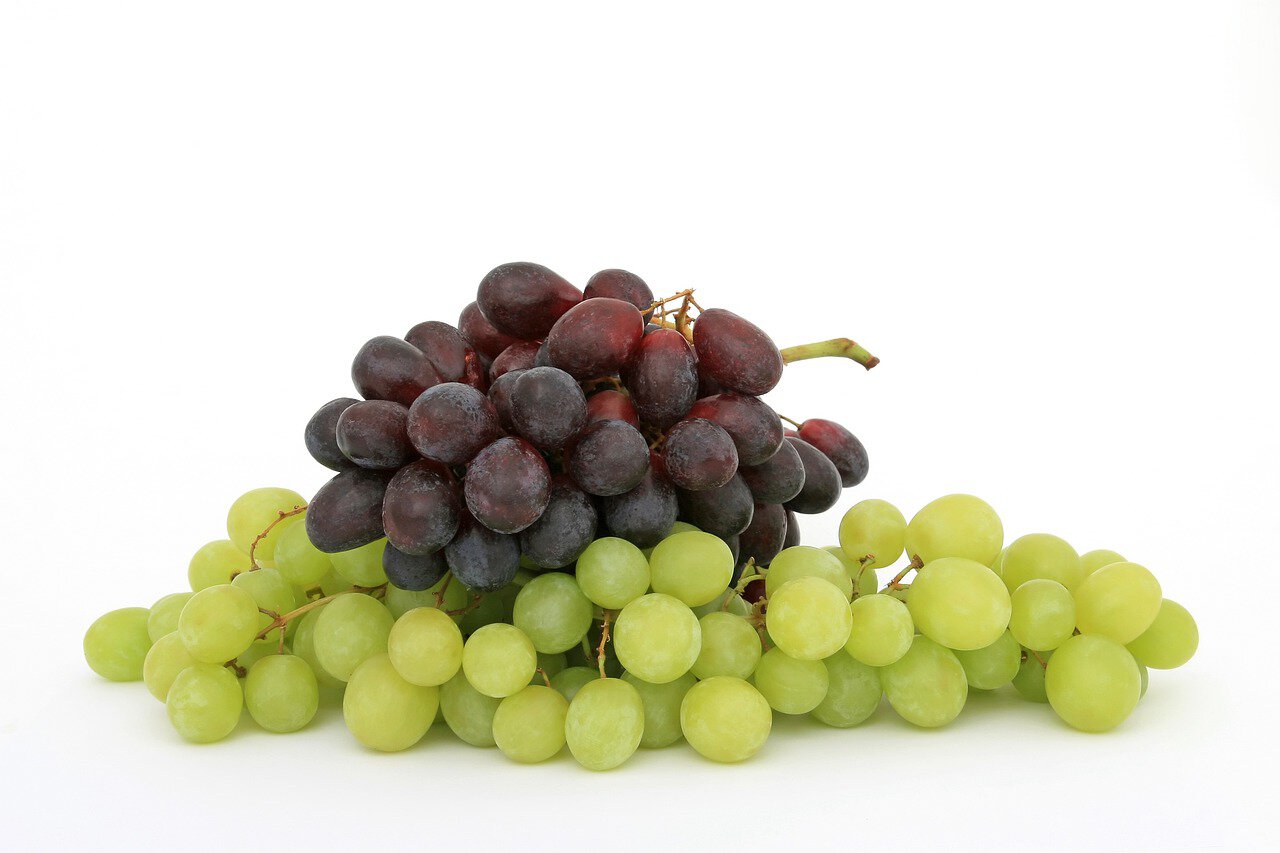
Grapes provide these vitamins and minerals for your bird:
| Vitamin C: | Is responsible for making red blood cells and strengthening nerve cells |
| Manganese: | Improves eyesight, cell health, and nerve function |
| Fiber: | Strengthens bones and clots blood |
Grapes come in many flavors and textures, so they will always be a welcome surprise for your sweet canaries. Grapes can be a sweet delight for your bird but exercise caution. Grapes have a lot of fructose, which isn’t good for your pal in excess.
4. Peaches
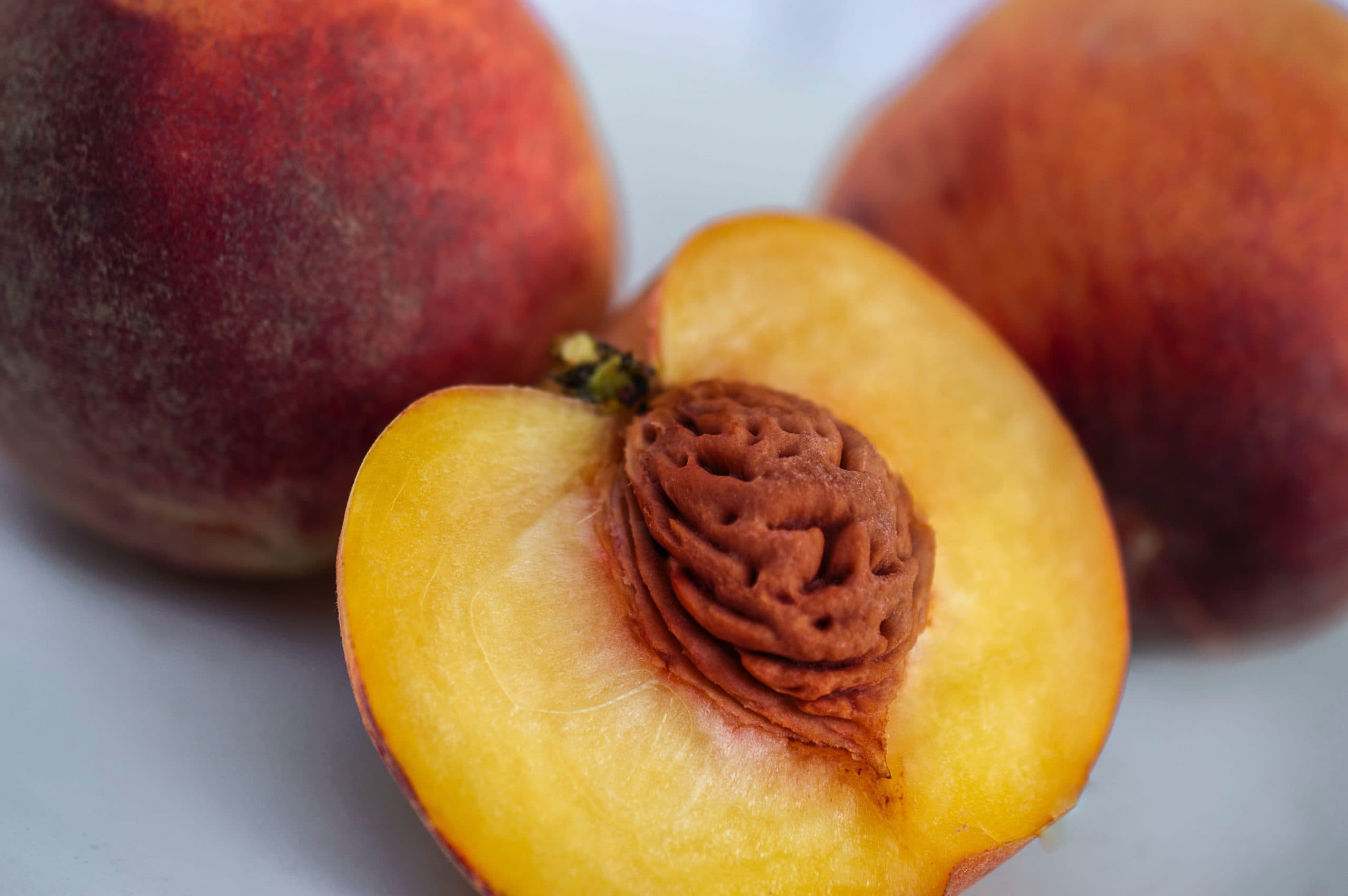
Peaches provide these vitamins and minerals for your bird:
| Vitamin C: | Offers an immunity boost |
| Carotenoids: | Protect your canary from disease |
| Polyphenols: | Keep blood vessels healthy and flexible |
| Vitamin E: | Nourishes skin and feathers |
| Vitamin K: | Strengthens bones and clots blood |
Your canary will surely love juicy, fresh peaches. This fruit should be chopped into tiny pieces for your canary, but it will quickly become a snack-time favorite. Peaches offer a wide selection of benefits. Make sure to remove any pits or stems beforehand.
5. Pears
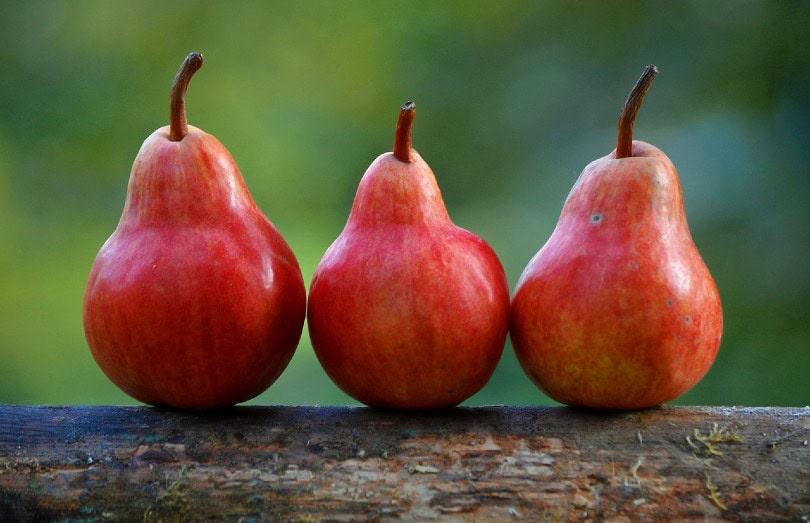
Pears provide these vitamins and minerals for your bird:
| Iron: | Works to create hemoglobin in red blood cells |
| Calcium: | Strengthens bones |
| Magnesium: | Strengthens bones and mediates blood pressure |
| Vitamin B3: | Boosts brain function |
| Vitamin C: | Offers an immunity boost |
Your canaries will love the gritty, sweet pear when they have a hankering for a treat. The soft, delicious fruits are readily available and very beneficial.
6. Melon
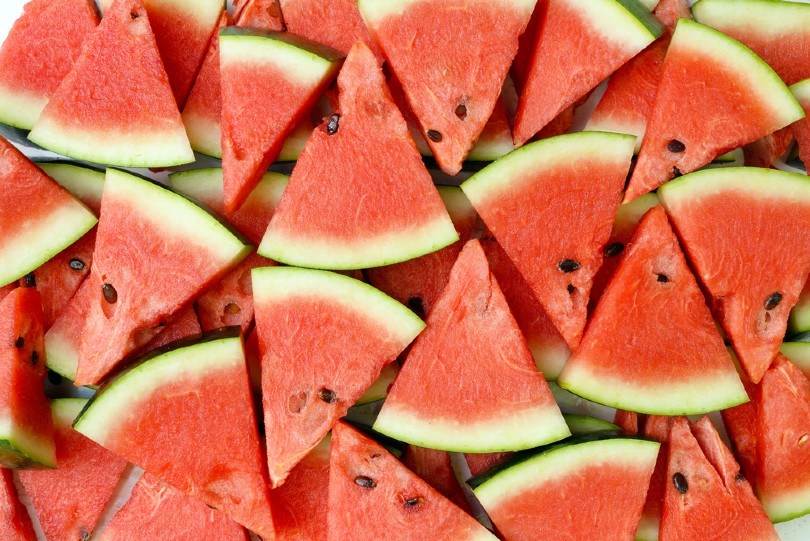
Melon provide these vitamins and minerals for your bird:
| Potassium: | Helps maintain normal fluid in the cells |
| Copper: | Responsible for making red blood cells and strengthening nerve cells |
| Vitamin B6: | Helps the immune system function and metabolism |
| Vitamin K: | Strengthens bones and clots blood |
Your canaries can have several types of melon, including cantaloupe, honeydew, and watermelon. Canaries even have a melon named after them called the canary melon. The seeds and flesh are safe for your canary friends.
7. Cherries

Cherries provide these vitamins and minerals for your bird:
| Vitamin C: | Offers an immunity boost |
| Vitamin K: | Strengthens bones and clots blood |
| Vitamin A: | Terrific vitamin for vision |
| Copper: | Responsible for making red blood cells and strengthening nerve cells |
| Manganese: | Helps the formation of connective tissue |
Cherries are a delicious, tart fruit that your canaries will surely enjoy. These might take a little preparation before they are canary-safe, but they will really enjoy the outcome. While cherries are delightful, you must remove the seeds and stems before serving.
8. Nectarines
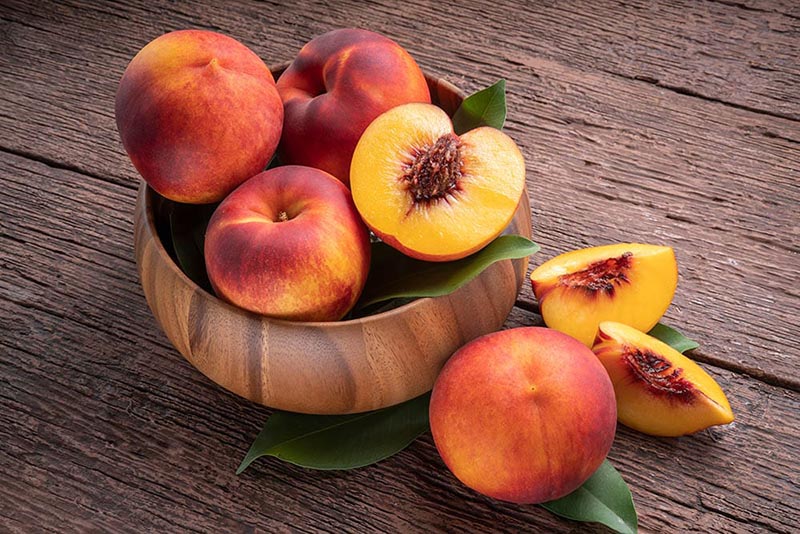
Nectarines provide these vitamins and minerals for your bird:
| Calcium: | Strengthens bones |
| Folate: | Plays a role in cell formation |
| Phosphorus: | Creates strong bones and teeth |
| Vitamin K: | Strengthens bones and clots blood |
Nectarines are similar in shape, size, and taste to Peaches, minus the fuzz. Your canaries will love them just as much, and they offer valuable vitamins and minerals too. Nectarines need to be sliced and diced for your canary. Make sure to remove the pit and any stems or leaves.

Preparing Fruit for Your Canary
When you prepare food for your canary, it’s best to wash all fruits thoroughly before serving. This removes any toxic chemicals or components on the flesh that might negatively impact your bird. Once you’ve rinsed the fruit, it’s time to dice it. All fruit should be in bite-size pieces to make the eating experience easier.
Always ensure your canary gets plenty of canary feed, so they have a balanced, nutrient-rich diet. Fruits, vegetables, and grains should take up approximately 20% to 25% of their daily diet. Otherwise, you should stick to the standard commercial bird food specifically designed for their dietary needs.

Conclusion
So, now you know there are plenty of scrumptious fruits you can share with your canaries. As long as they are prepared correctly, the fruit will benefit their overall health and tantalize their taste buds.
Remember that fruit is only a small portion of their daily diet since too much fruit can deplete the birds of other valuable nutrients.
Featured Image Credit: Terentieva Yulia, Shutterstock
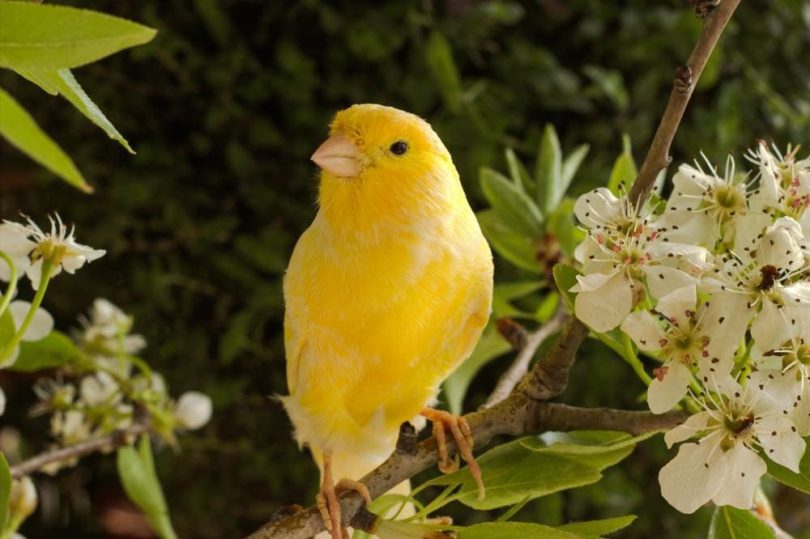






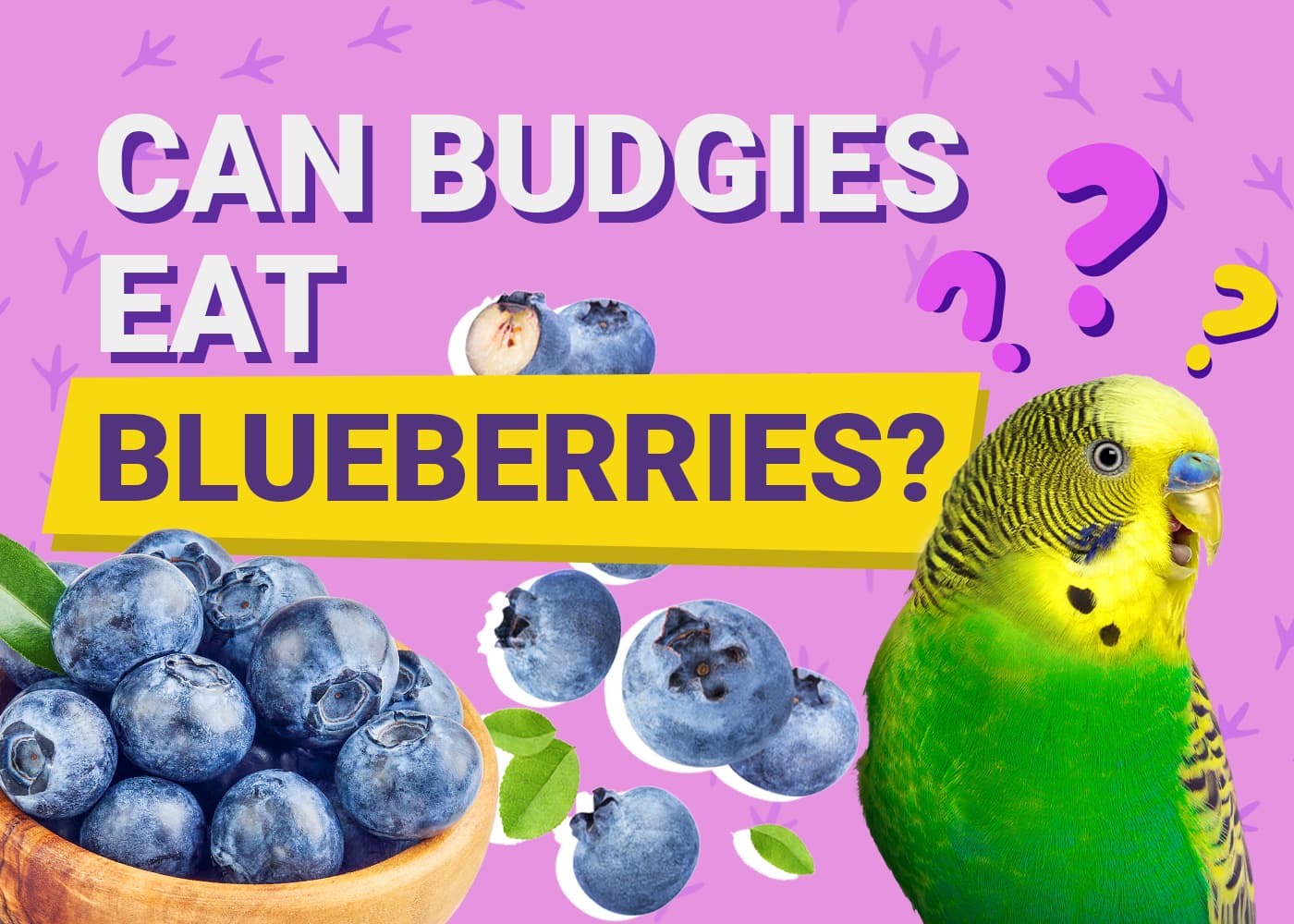
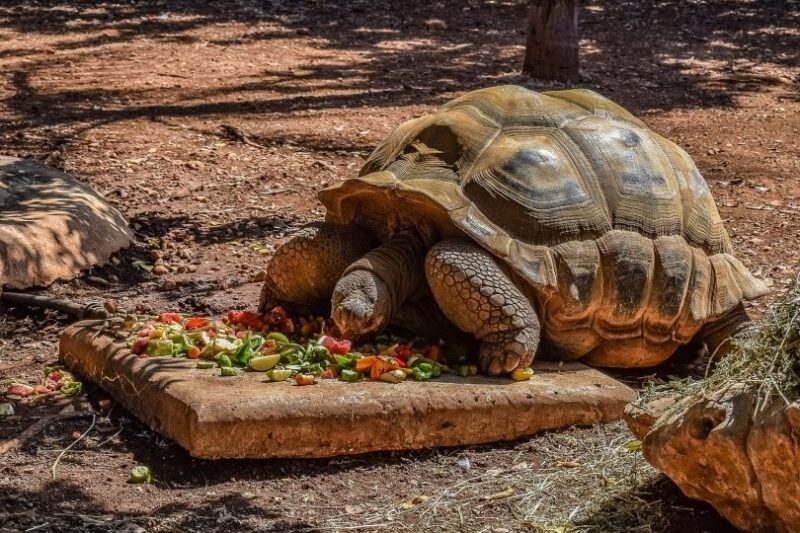


4 Responses
Good morning,
It has been mentioned several times that Canaries can eat oranges, but since I am extremely nervous of presenting any food stuff in a way that could choke my bird, I’m reluctant to offer these until I am sure they’re safe. How should I present an orange in the cage safe enough for the bird to enjoy? I am eager to
learn about oranges as in the winter the seasonal fruits are not available.
I look forward to your response at your earliest convenience.
Regards
Jennifer Tomlinson
Dear Jennifer,
Thank you for your question. It is great to hear that you are careful about feeding your canary. Though choking in canaries is not common at all, there’s a very easy way to go above and beyond to make sure that the fruit you offer your bird is completely safe for them. Instead of trying to cut up the orange into pieces you think would be manageable for your canary, you could clip a slice or wedge of the orange on a secure place in your pet’s cage. Ideally this would be near a perch of sorts. This would allow your canary to pluck off appropriately sized pieces of the fruit to enjoy without the risk of choking on a morsel that you slice for them.
As a passerine (songbird), a canary wouldn’t use their feet to hold onto food, which is why we recommend clipping it securely to their cage.
If you still have any questions, please don’t hesitate to let us know. We have an exotics veterinarian on our team at PangoVet.com who can answer your questions and even watch your little one on video, thus avoiding the stress of transportation to attend a conventional clinic.
what fruit and vegetables do canary eat
Hello Sharon,
as mentioned in the post, Bananas, Strawberries, Grapes, Peaches, Pears, Melon, Cherries and Nectarines are suitable for canaries. If you are further interested in a proper canary diet, we would like to recommend you reading this article:
– What Do Canaries Eat in the Wild and as Pets? Diet & Health Facts
Hope this answers your question.